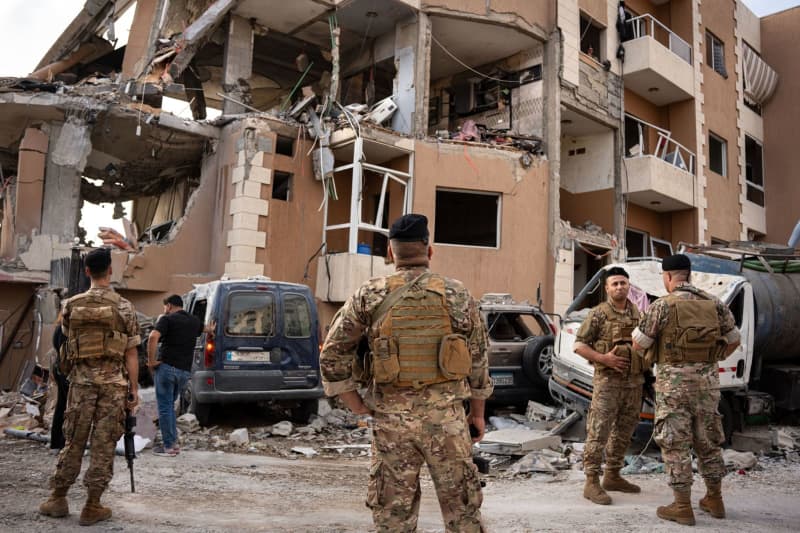Recent escalations in the ongoing conflict between Israel and the Hezbollah militia have resulted in significant casualties among the Lebanese army. According to army sources, four Lebanese soldiers have lost their lives in this turmoil, while an additional twelve soldiers were killed while off duty. This tragic toll highlights the precarious situation faced by the Lebanese military, which is often viewed as under-resourced and lacking in capability, particularly in the face of organized militias like Hezbollah. The dynamics of the conflict are further complicated by the Lebanese military’s limited role and engagement in hostilities.
The recent deaths of two Lebanese soldiers occurred during a direct confrontation with Israeli forces while they were stationed at a military post in Kafra, located in southern Lebanon. This incident underscores the heightened tension at the Lebanon-Israel border, particularly as military operations intensify on the Israeli side. The soldiers were on active duty at the time of their deaths, indicating that the conflict is affecting not only militants and irregular fighters but also state military forces tasked with maintaining order and security in the region.
In the broader context of the conflict, the Lebanese military has not been actively involved in the hostilities between Israel and Hezbollah. Instead, it has opted for a more passive stance by partially withdrawing from frontline positions along the southern border since the onset of the Israeli ground offensive approximately two weeks ago. This withdrawal can be interpreted as a strategy to avoid direct confrontation, reflecting the military’s acknowledgment of its limitations and the overwhelming firepower demonstrated by Israeli forces.
Despite this restrained approach, the Lebanese army was compelled to respond when one of its bases in Bint Jbeil was targeted by Israeli fire. This response is indicative of the delicate balancing act that the Lebanese military must perform. On one hand, they are tasked with defending their territory and personnel; on the other, they must navigate the complex landscape of regional geopolitics, where direct engagement with Israel could exacerbate an already volatile situation.
The situation poses significant challenges for Lebanon’s military leadership, which must consider both the operational capabilities of their forces and the potential for escalating violence. The loss of soldiers, especially while engaging with a powerful adversary like Israel, creates additional pressure on the Lebanese military, as public opinion may shift against perceived inaction or inadequately measured responses. The government and military leadership will need to address these losses carefully, balancing national security needs with the desire to maintain stability and avoid wider conflict.
As Lebanon grapples with the fallout of these clashes and the enduring influence of Hezbollah in its military and political landscape, the future remains uncertain. The instability in the region, compounded by external influences and the dynamics of partisan warfare, poses ongoing risks for the Lebanese state. The country’s military must find a way to protect its personnel while avoiding entanglement in a conflict that has already claimed numerous lives on both sides, thereby fostering a fragile peace in a region characterized by ongoing turmoil and tension.

